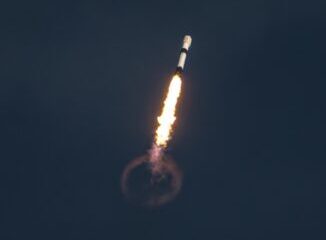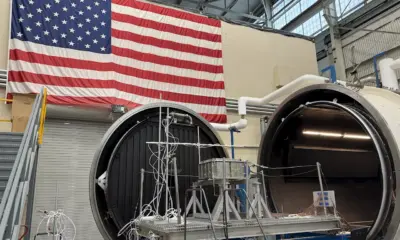Science
NASA Faces Major Workforce Reduction as 4,000 Employees Opt for Deferred Resignation

NASA is poised to experience a significant reduction in its workforce as nearly 4,000 employees have opted to participate in the Trump administration’s Deferred Resignation Program (DRP). This decision equates to a workforce reduction of over 20%, as confirmed by NASA News Chief Cheryl Warner in an email to reporters on July 25.
The DRP allows employees to take paid administrative leave until a mutually agreed-upon departure date. This initiative is part of a broader strategy by the White House aimed at decreasing government expenditures. Warner noted that NASA employees had two opportunities to apply for the program. In the initial phase, which concluded in February, approximately 870 employees, representing 4.8% of the workforce, chose to participate. During the second phase, which ended just before midnight EDT on July 25, about 3,000 employees—or 16.4% of the agency’s total staff—made the same choice.
This latter group includes employees who also opted into two other similar initiatives: the Voluntary Early Retirement Authority and the Voluntary Separation Incentive Program. Warner indicated that the final numbers could fluctuate in the upcoming weeks, as some employees may withdraw their applications or have them rejected.
In addition to the DRP, NASA has seen a natural attrition of around 500 employees since President Trump took office in January. By January 9, 2026, when those participating in the DRP’s second phase officially depart, NASA’s workforce is expected to shrink to approximately 14,000 employees. The combined impact of the DRP and related initiatives will result in an estimated 21% cut to the agency’s workforce.
These workforce reductions are part of a larger strategy to cut NASA’s budget. The proposed federal budget for 2026 includes a 24% reduction in overall funding for NASA, with a proposed near halving of the agency’s science budget. Such cuts have faced opposition from various stakeholders, including scientists and engineers who are concerned about the implications for American science and astronaut safety.
In response to these proposed budget cuts, nearly 300 NASA scientists recently signed the “Voyager Declaration,” which warns that these financial reductions could have severe consequences for space science and exploration in the United States. Protests have arisen from both the scientific community and the public, highlighting the widespread concern regarding the future of NASA and its crucial role in advancing space exploration and research.
-

 Science2 weeks ago
Science2 weeks agoNostradamus’ 2026 Predictions: Star Death and Dark Events Loom
-

 Technology1 month ago
Technology1 month agoOpenAI to Implement Age Verification for ChatGPT by December 2025
-

 Technology6 months ago
Technology6 months agoDiscover the Top 10 Calorie Counting Apps of 2025
-

 Health4 months ago
Health4 months agoBella Hadid Shares Health Update After Treatment for Lyme Disease
-

 Health4 months ago
Health4 months agoAnalysts Project Stronger Growth for Apple’s iPhone 17 Lineup
-

 Health4 months ago
Health4 months agoErin Bates Shares Recovery Update Following Sepsis Complications
-

 Technology4 months ago
Technology4 months agoElectric Moto Influencer Surronster Arrested in Tijuana
-

 Technology5 months ago
Technology5 months agoDiscover How to Reverse Image Search Using ChatGPT Effortlessly
-

 Technology6 months ago
Technology6 months agoMeta Initiates $60B AI Data Center Expansion, Starting in Ohio
-

 Technology6 months ago
Technology6 months agoRecovering a Suspended TikTok Account: A Step-by-Step Guide
-

 Education4 months ago
Education4 months agoHarvard Secures Court Victory Over Federal Funding Cuts
-

 Technology2 months ago
Technology2 months agoDiscover 2025’s Top GPUs for Exceptional 4K Gaming Performance





















